Akoma Festival
(Black Love Days)
The day is dedicated to promoting
Afrikan Love, Honor and Respect
History and Background:
Just like Kwanzaa, Black Love Day, is an Afrikan-inspired holiday that you may want to incorporate into your life. Black
Love Day or the Akoma Festival, as we call it here in St. Louis, was created by Sister Ayo Handy–Kendi in Washington
D.C. The first Black Love Day was held in 1993 in Washington, DC. It was organized after Sister Kendi’s son was
killed. This caused Sister Kendi to realize the great need for love in our community for healing and peace. With this
realization she envisioned a day where our community would renew and reaffirm its love for one another, heal any
scars, and cleanse ourselves of past hurts.
Black Love Day includes five basic acts of love to be shown i.e. love for God, self, family, community, and race.
According to Sister Kendi, the day begins at midnight with the first act of love for self.
Black Love Day for some has become an alternative to valentine’s day which does not come out of our historical
perspective, traditions or legacy. Sister Kendi created Black Love Day as a one day celebration on Februari 13th. It was
expanded in St. Louis to a three-day celebration. This was done to ensure time for all the activities and to extend and
expand the love.
Black Love Day (Akoma FestivaL) - St. Louis Observance:
The three day festival can is held giving time to observe all the five acts of love designed by Sister Kendi. The festival
begins Februari 13th
and ends on Februari 15th.
Akoma is an Akan saying that means “Have a Heart” in english. The Akoma is both a saying and an Adinkra symbol
used by this West Afrikan society to indicate love and care for one another. It can also symbolize having courage to
love and care.
Healing and cleansing rituals may also be held. Altars may be built and ceremonies held for cleansing and healing.
Decorations:
On the13th the Akoma Adinkra symbol is placed about the home. This symbol is heart shaped and is an icon for the
proverb “Have a Heart.” Altars may also be built that include the Kinara, the Mishumaa Saba as well as the Kikombe
Cha Umoja. Sister Kendi’s book on Black Love Day provides further details of the altars.
Activities:
Home:
Throughout the three days acts of Love, Respect, and Care are exemplified in the five areas. A person could send a
card to someone, call them, and wish them well or go spend time with a loved one. Apologies may also be given during
these days and conflicts resolved
Healing rituals can take place or difficulties reconciled. Acts of love for self can include ritual cleansing baths, special
treats, or time alone for meditation and refocusing. Loved ones can gather with the family and eat together or have
collective activities that illustrate and strengthen love, respect, and healing. There is no limitation to the Kuumba
(creativity) that could be used during these days.
Public:
Public events could also be organized or several families could join together for an activity. The activity should center
on love, respect, healing, and cleansing. Public cleansing rituals as outlined in the Black Love Day Book by Sister
Kendi can also be held. |
|
|
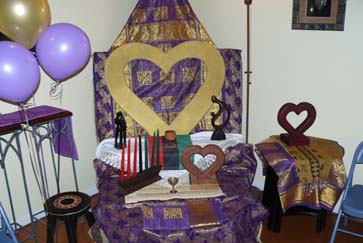
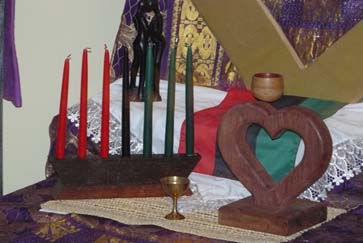
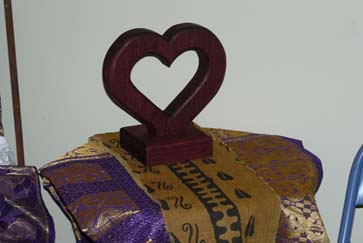
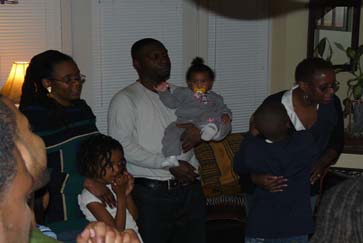
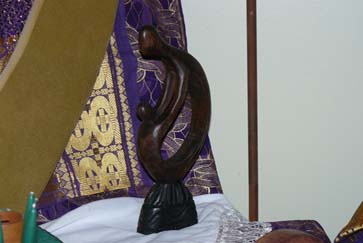
|





